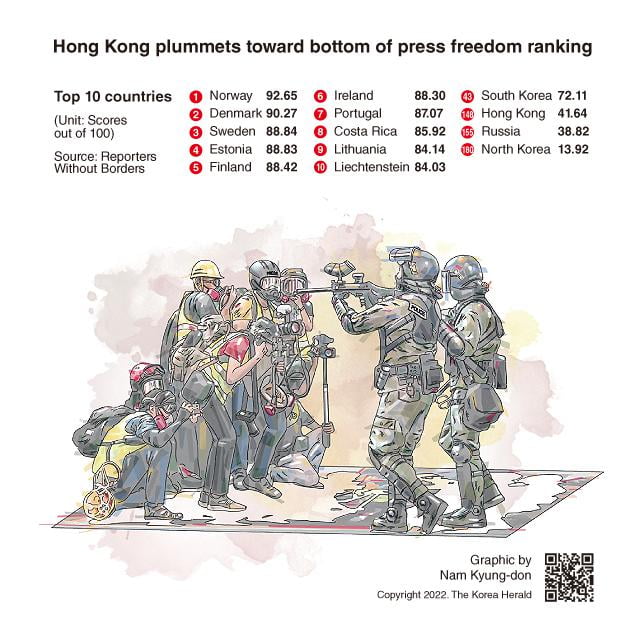Hong Kong’s ‘press freedom’ has plunged 68 places to 148th (out of 180) since the implementation of the National Security Law as government critics are jailed and publications silenced.
The 20th World Press Freedom Index published by Reporters Without Borders (RSF) reveals a large increase in polarisation amplified by information chaos – that is, media polarisation fuelling and feeding divisions within and between countries.
The spread of ‘opinion media’ and disinformation are amplified by the way social media functions and are creating extreme polarisation of views with an unrepresented and unlistened to middle ground.
“At the international level, democracies are being weakened by the asymmetry between open societies and despotic regimes that control their media and online platforms while waging propaganda wars against democracies.”
Reporters Without Borders defines press freedom as “the effective possibility for journalists, as individuals and as groups, to select, produce and disseminate news and information in the public interest, independently from political, economic, legal and social interference, and without threats to their physical and mental safety.”
In order to reflect press freedom’s complexity, five indicators are used to compile the Index: the political context, legal framework, economic context, sociocultural context, and security.
image: The Korea Herald

